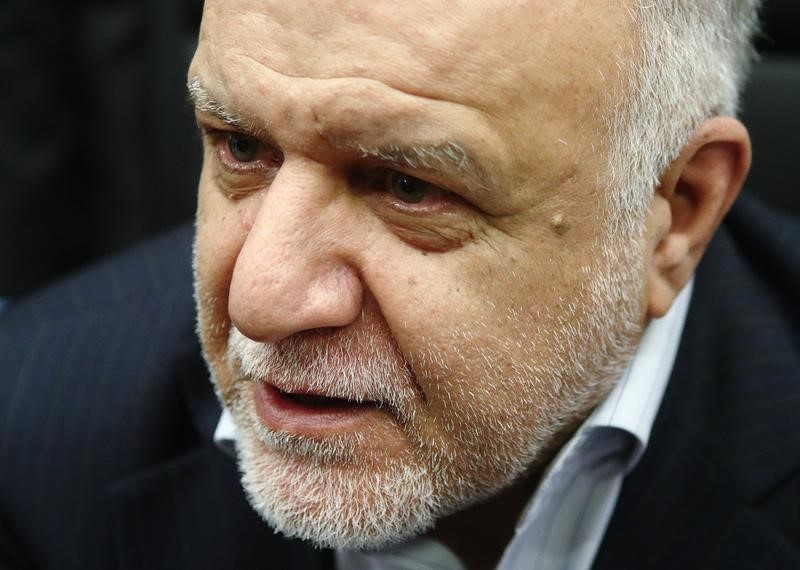By Christopher Johnson and Koustav Samanta
LONDON/BENGALURU (Reuters) - Iran will increase its oil exports by up to 60 percent within a year if it can agree a nuclear deal with world powers bringing an end to sanctions, a Reuters survey of analysts said on Wednesday.
A poll of 25 oil analysts from leading banks and brokerages forecast Iran would be able to raise crude oil output by between 250,000 and 500,000 barrels per day (bpd) by the end of this year and boost sales abroad by up to 750,000 bpd by mid-2016.
That would push the Islamic Republic's total crude oil output to around 3.6 million bpd, its highest for four years, and would inflate Iranian exports by around 60 percent at a time when world markets are already likely to be oversupplied.
But the Reuters survey said it would take time for Tehran to raise output as nuclear inspectors verified Iran's compliance with the terms of any deal and sanctions were removed slowly.
"It will take a few months before Iran can start to export at full blast," said Swiss energy markets analyst Olivier Jakob.
Negotiators from Tehran are locked in talks in Vienna with officials from the United States and five other major powers to try to agree a deal to would allow development of peaceful nuclear technology in Iran.
The deadline for the talks has been extended until July 7 to allow more time for a deal that both sides have said is close.
The West wants guarantees that Iran is not secretly developing nuclear weapons, while Iran wants the removal of financial sanctions that have crippled its economy and reduced its oil exports by more than 1 million bpd.
Iranian Oil Minister Bijan Zanganeh has said Iran could restore all its lost oil to markets quickly after sanctions.
But years of under investment mean it may struggle to get its oil industry anywhere near full potential, analysts say.
Edward Morse, global head of commodities research at Citi in New York says Iran's own estimates "may be overly optimistic".
"Sanctions have clearly impaired Iran's ability to maintain its mostly mature oilfields, let alone develop new projects," Morse wrote in a note to clients this week.
Iran pumped around 2.82 million bpd in June, according to a Reuters survey. [OPEC/O]
Two analysts surveyed, Michael Wittner at Societe Generale (PARIS:SOGN) in New York and Bjarne Schieldrop at SEB Markets in Oslo, said they expected no initial increase in Iranian output.
At the other end of the scale, Mads Hemmingsen at Global Risk Management said Iranian production would surge quickly.
Twelve of 25 polled forecast Iranian supply would increase by up to 250,000 bpd in the first six months, while eight others saw an increase of between 250,000 and 500,000 bpd this year.

A year after any nuclear deal, most analysts see much bigger increases in Iranian supply with nine analysts forecasting a rise of up to 750,000 bpd and another seven seeing a rise of between 750,000 and 1 million bpd.